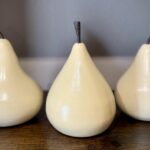Make your food taste even better with fresh herbs grown in your own garden. Since only a few plants of each herb are required for family use, a small space such as a section of the vegetable garden is sufficient. Most herbs can be successfully grown in containers attractively arranged outdoors along borders of driveways, walks, and patios or on porches and balconies. Hanging baskets are especially suitable for herbs. A few can be grown fairly well indoors with special care. Attention must be given to providing plenty of sunlight. The culture of herbs in containers, including soil preparation and fertilizing, is similar to that for vegetables.
In general, most herbs will grow satisfactorily under the same conditions of sunlight and soil, and with similar cultural techniques as are used for vegetables. Therefore, check the appropriate vegetable gardening guides for details on soil preparation, liming, fertilizing, and watering. Special consideration should be given to the location and care of a few of the herbs that are somewhat sensitive to soil moisture conditions. Sage, rosemary, and thyme require a well-drained, slightly moist soil, whereas parsley, chervil, and mint grow best on soils retaining considerable moisture. Additions of organic matter to sandy soils are particularly beneficial to herbs since they are shallow rooting.
Perennials are generally best started in plant beds or boxes using seed or cuttings, and then transplanted into the garden or growing containers. The seeds, leaves, flowering tops, and occasionally the roots of the herbs are used for flavoring purposes. Their flavor is due for the most part to a volatile or essential oil contained in leaves, seeds, and fruits. The flavor is retained longer if the herbs are harvested at the right time and properly cured and stored. The young, tender leaves can be gathered and used fresh at any time during the season, but for later use they should be harvested when the plants begin to flower and should be dried rapidly in a well-ventilated, darkened room. If the leaves are dusty or gritty, they should be washed in cold water and thoroughly drained before drying.
As soon as the herb leaves or seed are dry, they should be cleaned by separating them from stems and other foreign matter and packed in suitable containers to prevent loss of essential oils that give herbs their delicate flavor. Glass, metal, or cardboard containers that can be closed tightly will preserve the aroma and flavor. Glass jars make satisfactory containers, but they must be painted or stored in a dark room to prevent bleaching of the green leaves by light.
Herbs commonly grown in Florida:
- Anise
- Basil
- Borage
- Cardamom
- Coriander
- Cumin
- Dill
- Fennel
- Garlic
- Ginger
- Mint





